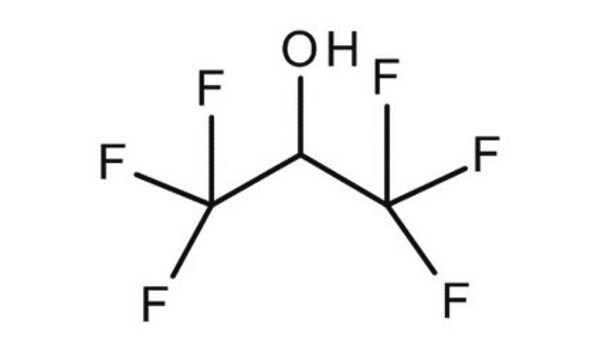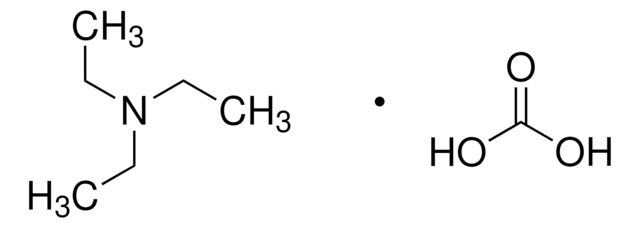8.08259
2,2,2-Trifluoroethanol
for synthesis
Synonym(s):
2,2,2-Trifluoroethanol
About This Item
Recommended Products
vapor pressure
70.9 hPa ( 20 °C)
Quality Level
Assay
≥99% (GC)
form
liquid
potency
240 mg/kg LD50, oral (Rat)
1680 mg/kg LD50, skin (Rat)
expl. lim.
8.4-28.8 % (v/v)
pH
7
bp
73.6 °C/1013 hPa
mp
-43.5 °C
transition temp
flash point 30 °C
density
1.38 g/cm3 at 25 °C
storage temp.
2-30°C
InChI
1S/C2H3F3O/c3-2(4,5)1-6/h6H,1H2
InChI key
RHQDFWAXVIIEBN-UHFFFAOYSA-N
General description
Application
- In the preparation of nylon/Ag composite nanofibers by electrospinning method.
- To study the combination of two polymers PANI (polyaniline) and PHB (polyhydroxy-butyrate).
Features and Benefits
Signal Word
Danger
Hazard Statements
Precautionary Statements
Hazard Classifications
Acute Tox. 3 Inhalation - Acute Tox. 3 Oral - Eye Dam. 1 - Flam. Liq. 3 - Repr. 1B - STOT RE 2 Inhalation
Target Organs
Blood
Storage Class Code
3 - Flammable liquids
WGK
WGK 1
Flash Point(F)
86.0 °F - closed cup
Flash Point(C)
30 °C - closed cup
Certificates of Analysis (COA)
Search for Certificates of Analysis (COA) by entering the products Lot/Batch Number. Lot and Batch Numbers can be found on a product’s label following the words ‘Lot’ or ‘Batch’.
Already Own This Product?
Find documentation for the products that you have recently purchased in the Document Library.
Customers Also Viewed
Protocols
Fmoc resin cleavage and deprotection follows the difficult task of detaching the peptide from the resin support and removing all the side-chain protecting groups of the amino acid residues to yield the desired peptide.
Our team of scientists has experience in all areas of research including Life Science, Material Science, Chemical Synthesis, Chromatography, Analytical and many others.
Contact Technical Service










